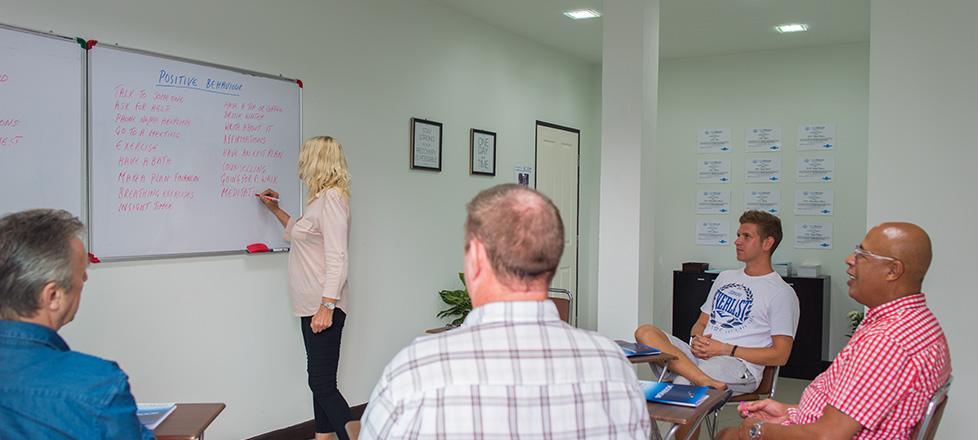Methamphetamine
Help with Meth Addiction at SafeHouse
Help with Methamphetamine addiction is being increasingly needed these days. Like other drugs, Methamphetamine (commonly known as Meths) provides an immediate ‘feel good’ leading to potential addiction and dependency concerns. It’s an insidious intrusion. People take it; it feels great and the attraction takes hold! Not rocket science, just a normal path to addiction. The insidious nature of it is the denial in the user, who believes that he or she is ‘choosing’ to behave like this when the luxury of choice has been undermined considerably. They don’t even know they need help with Meth addiction.

Historically, Speed or Amphetamine was the drug of choice when people needed extra energy to indulge in hard work or excessive play. Many people used Amphetamines for years without any significant problems – some for 20 years or more. These people were (and are) from a variety of professional and non-professional groups and socio-economic classes.
Methamphetamine (Meths) Popularity
As the Speed started to dry up, and meth became more available (a situation much a result of clever marketing by traffickers, producers and dealers) people had little choice: if they wanted to continue to use stimulants, the move to Methamphetamine was foisted upon them, as was the inevitable need for help with Methamphetamine addiction that would surface years, or perhaps only months, later.
Heroin droughts around the world in the late 90’s and early 2000’s (also engineered by the criminal element) also exacerbated the global Methamphetamine explosion. There was a peak in Amphetamine use around 2006, while both Speed and Methamphetamine were in plentiful circulation. Since that time there has been an ongoing transition from Speed and other drugs, to Methamphetamine and other drugs, and the requirement for help with Methamphetamine addiction has never been so evident as now. There has been unhelpful TV and media coverage which has increased the stigma for users and families alike and sent the issue deeper underground than is useful.
The recovery protocol for help with Methamphetamine addiction is a very individual process. Influencing factors include age, gender, how long you have been using for, other complicating health factors, and the age you started. While the intent to stop using is often in the addict’s mind, actually doing it is another matter entirely. It requires the individual to take the first step and stop using. Some help may be obtained from a trusted doctor, or a detox centre – often and advisedly well away from the familiar using areas of the addict. But wherever it takes place, the ‘user’ must stop before the real and effective help with Methamphetamine addiction can begin. Addiction is the operative word, not Methamphetamine.
One of the difficulties with detox is that people feel somewhat unwell, or just uncomfortable, for 3 to 10 days during the withdrawal process. Prescribed medications to help with Methamphetamine addiction symptoms such as agitation, mood destabilisation and inhibited mental equilibrium are well tested. The emotional component of the withdrawal is sometimes the most difficult part. The physical aspects to withdrawal, the mood fluctuations and mental cravings, can be fairly challenging but good preparation by the addict and the carers will minimise the challenges. Supportive friends, parents and partners, and medical and emotional support agencies may have a part to play, especially if the withdrawal/detox process is at home or as an outpatient. The more strategies and support the addict has in place to help with Methamphetamine addiction cessation, the better.
Withdrawal or detox is only the beginning of the process of recovery. Often people need to take some serious time out to recover emotionally, physically and spiritually. A rehab environment is always a good viable option. Familiar acquaintances who are also users, places, things and triggers create extra stressors which can be very dangerous and totally compromise even the most strenuous, heartfelt, and strong-willed efforts. Help with Methamphetamine addiction is a multi-faceted protocol that must be well planned.
The reality of ceasing use is actually relatively easy as compared to staying stopped. This is where really effective rehab can assist in providing the tools and strategies to use in everyday life to maintain abstinence from the drugs the addict had come to depend on. It does require hard work. Treatment does not simply wash over anybody. The addict must be an active participant in the process. If outwardly unwilling to accept help with Methamphetamine addiction at first, there must at least be some passive acceptance from which to build momentum.
Help with Meth Addiction at SafeHouse
While some days in rehab will be difficult and challenging, they will be far easier than the worst days of using. One-to-one counselling, which includes ongoing comprehensive assessment and treatment planning, is an essential part of the recovery process. A realistic collaborative approach to make the best of the time available while in treatment is paramount to get the maximum benefit from help with Methamphetamine addiction. This approach also helps to inform aftercare needs post-rehab when transitioning back into the real world.
The importance of this part of the recovery process is often underestimated. Regular group work addressing issues such as distress tolerance, emotional regulation, decision making and relapse prevention are part of the toolbox that everyone will require. These groups have ‘homework’ attached that is practical, experiential, reflective, and informative of self. At SafeHouse Rehab Center Thailand we can offer a safe and sound space for help with Methamphetamine addiction, where learning, education, relaxation and growth can occur well away from the temptations of the old environments.
Meth addiction in Australia
Meth addiction is a widespread problem in Australia. Under Australian law, methamphetamine is available for medical use but restricted. The drug is sought after by many in Australia as it is easier to obtain and a cheaper alternative to Heroin. Methamphetamine is known as Meths (for short) as well as Speed and Ice.

